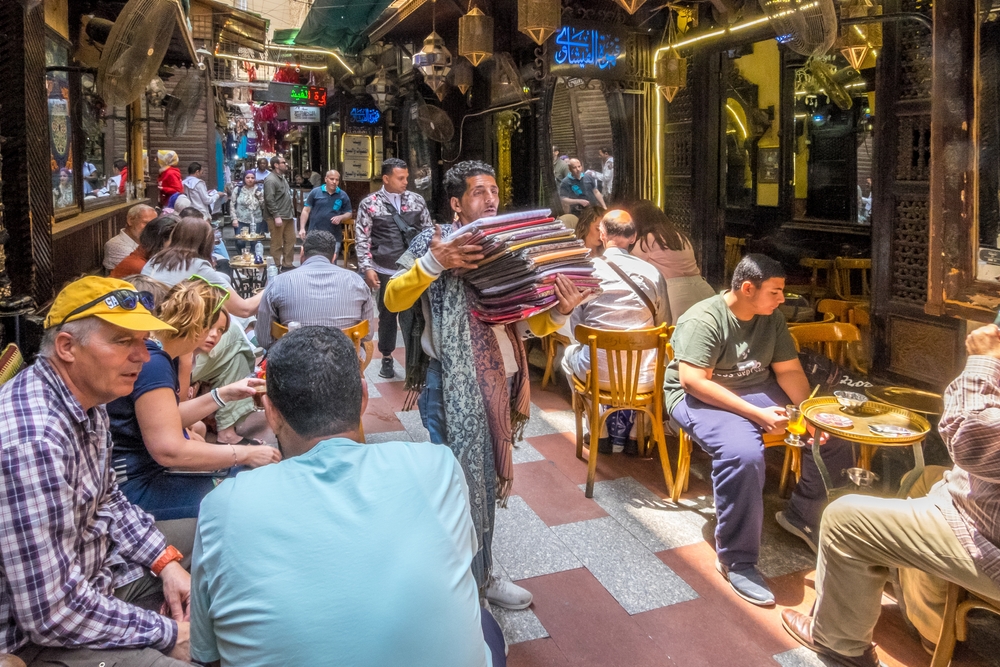Stepping off the plane and into the busy streets of Cairo, Lana Rabie felt a mix of anticipation and uncertainty. An architect who had spent most of her life in Paris, Lana had always considered the city her home—a place of study and cultural experiences. Yet, as she faced the familiar yet foreign landscape of Egypt, Lana was met with a profound question: Where do I truly belong?
For individuals like Rabie, returning to a homeland after years abroad is more than just a physical journey; it is an emotional and psychological challenge. Having lived in Paris, she is deeply shaped by the cultural and intellectual richness of her adopted city, while her Egyptian heritage remains a distant but intrinsic part of her identity.
This tension between two worlds often leads to an ongoing struggle to fit in and find a sense of belonging, as she navigates the expectations and values of both cultures.
Reflecting on her experience, Lana shared, “I’ve been living in Paris for quite some time, and the thing I’ve noticed the most about myself is that the more I live abroad, the more I don’t feel like I belong either here or there—in a lot of aspects: sense of humor, values, certain takes on topics.”
She elaborated further, “In France, I’m seen as very naive, close-minded, and prudish. And in Egypt, I’m viewed as the khawaga (foreigner) with perhaps too open-minded opinions and behaviors. Even though I’m a very adaptable person, it’s incredibly hard to fully adjust to one culture or the other. I’m more of a mix of both.”
Lana’s experience underscores a common challenge faced by many who straddle multiple cultural worlds.
The sense of dislocation she describes is a classic example of what psychologists identify as an “identity crisis.” This phenomenon often occurs when individuals feel fragmented or unsure of their place within their cultural or social environments.
In today’s world, many might find themselves in similar situations, facing not only identity crises but also a range of other challenges that are often overlooked.
She elaborated further on the practical challenges she faces, noting, “In France, I never had to worry about how I’m going to get to my final destination. The extensive public transportation network made travel straightforward. Paris is designed to discourage car use and promote public transit. On the other hand, Cairo is a city built for cars. It’s not walkable at all, and navigating it without a car can be quite challenging.”
“When I came back to Egypt, I felt like my independence was taken away from me, which is a crucial part of my sense of identity. In Paris, as a woman, I felt safe walking the streets or using public transportation, unlike my experiences here,” she added.
Summer Darwish, who recently moved back to Egypt after spending her entire life in the United States, provides another perspective on adjusting to life in a new (or rather, old) environment.
She noted, “One specific challenge I faced moving to Egypt from the US was social differences. I found that people in Egypt are much more involved and assertive than Americans. The US relies on self-sufficiency, while Egypt thrives on community support.”
“I found that Egyptians are much more welcoming and eager to help you out, even if you are not looking for help. While it may have taken some time to adjust to, I found Egyptians so friendly. I grew to love this part of the culture and high standard of hospitality.” She added
These kinds of challenges compound the struggle with identity. For individuals like Rabie, a sense of independence is often tied to the freedom of movement, self-sufficiency, and safety experienced in Paris.
This autonomy significantly contributes to her self-identity. Conversely, others like Summer Darwish, who recently moved back to Egypt after spending her entire life in the US, may adapt more quickly to new social norms due to their personalities or past experiences.
While Darwish found the communal and assertive nature of Egyptian society a welcome change, highlighting the diverse experiences of returning to a homeland, Rabie faces a more complex transition.
These varied experiences highlight that returning to one’s homeland is not a one-size-fits-all journey. While every person’s gains and losses are different, they are likely to occur particularly if one’s social life is rooted in one country more than the other.
These challenges, from how others perceive someone to the difficulties of fitting in with friends in both countries, create a constant negotiation of identities. This can prevent a person from truly being themselves, leading to a cycle of never feeling at home, even in places that should be their own. Caught between worlds, they struggle to fully embrace or be embraced by either. With growing globalization and migration, more people are finding themselves in this complex process of returning to their cultural roots, intensifying the challenge of belonging.







Comments (0)